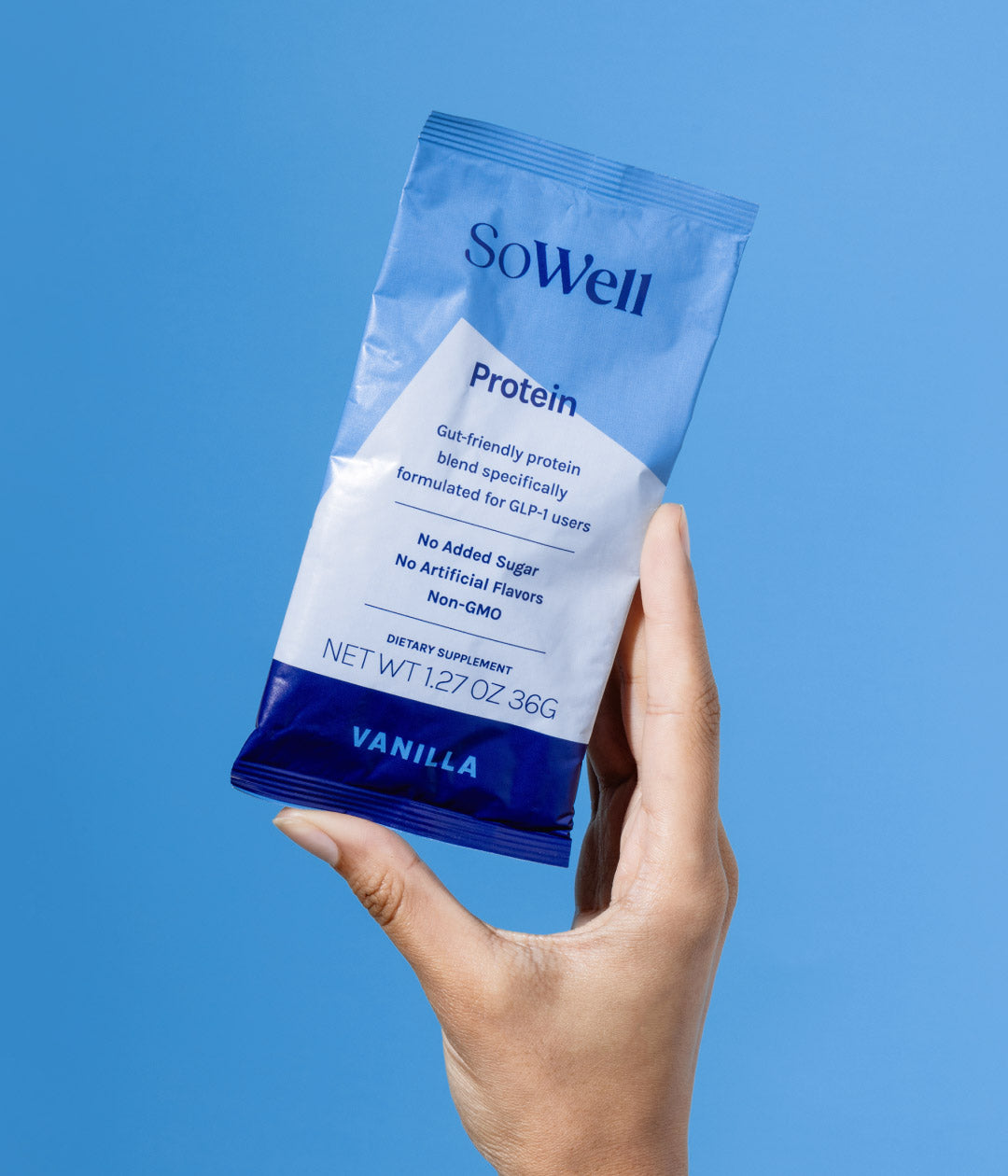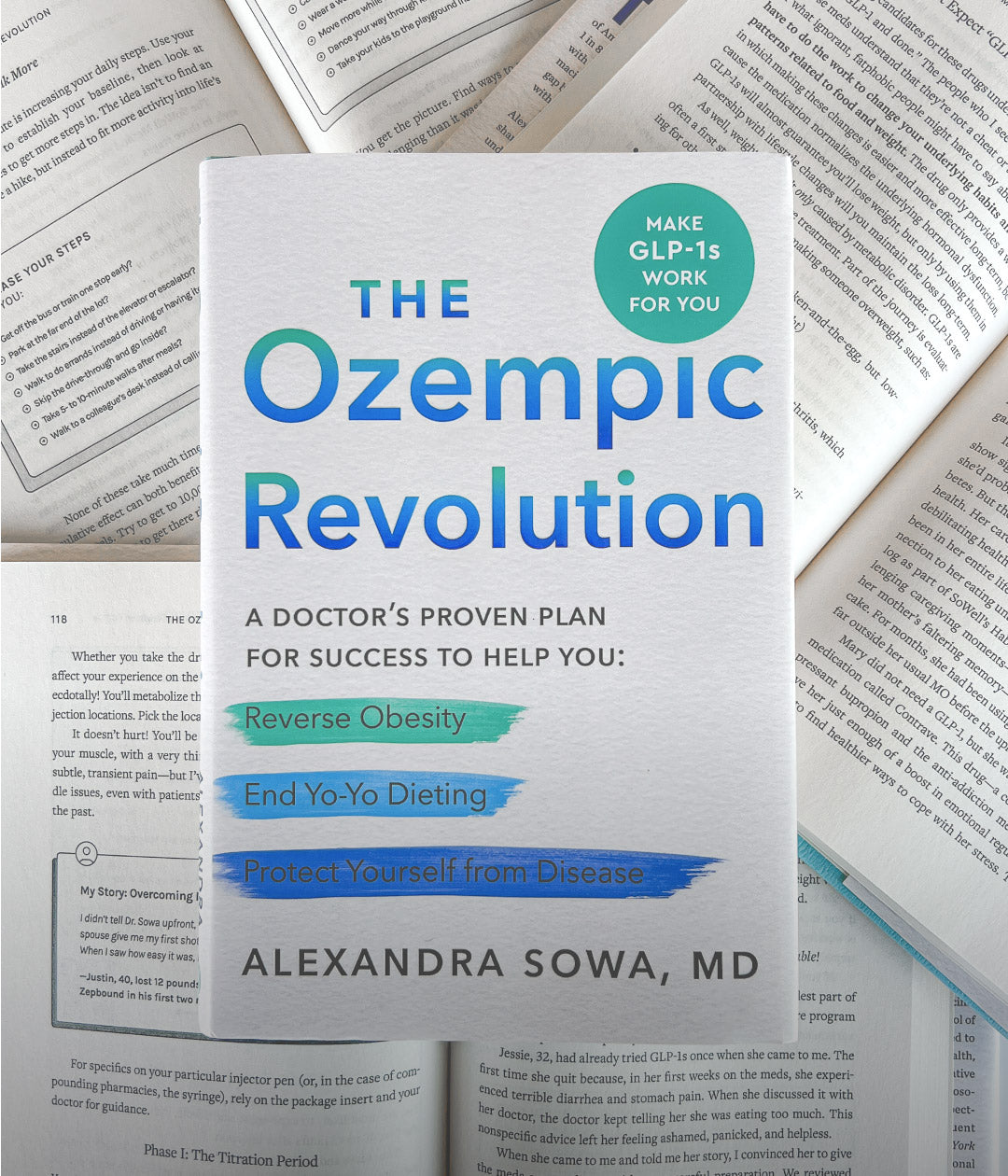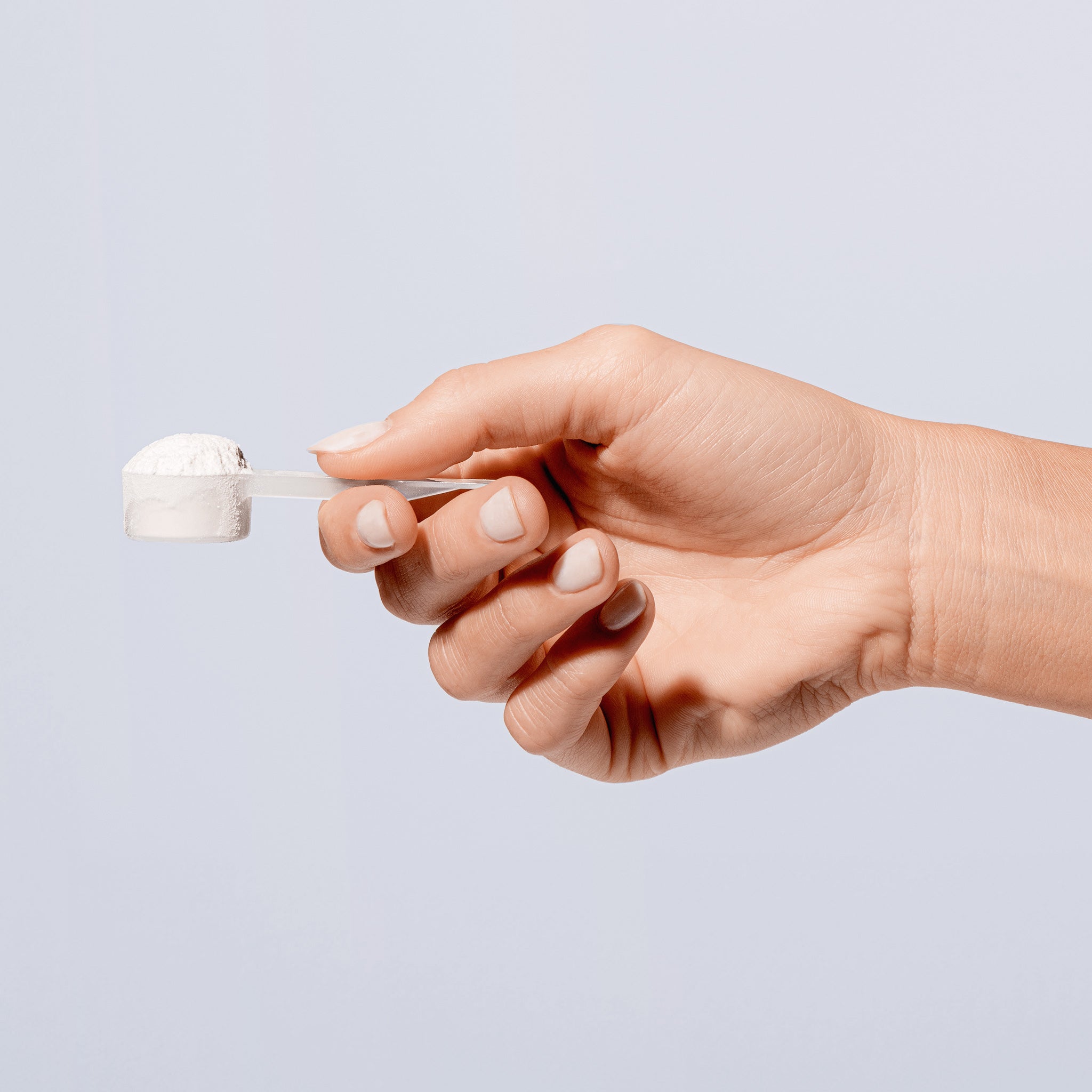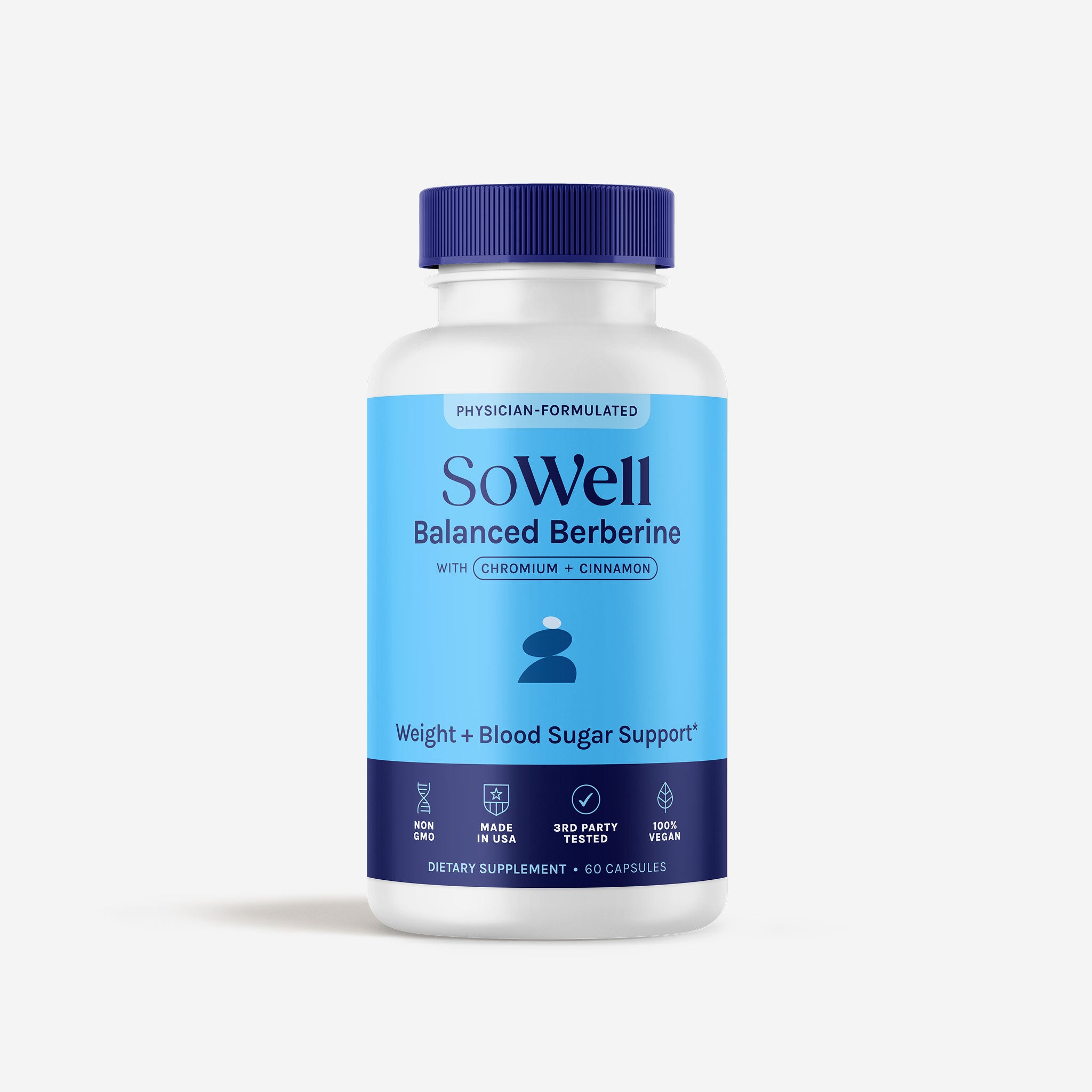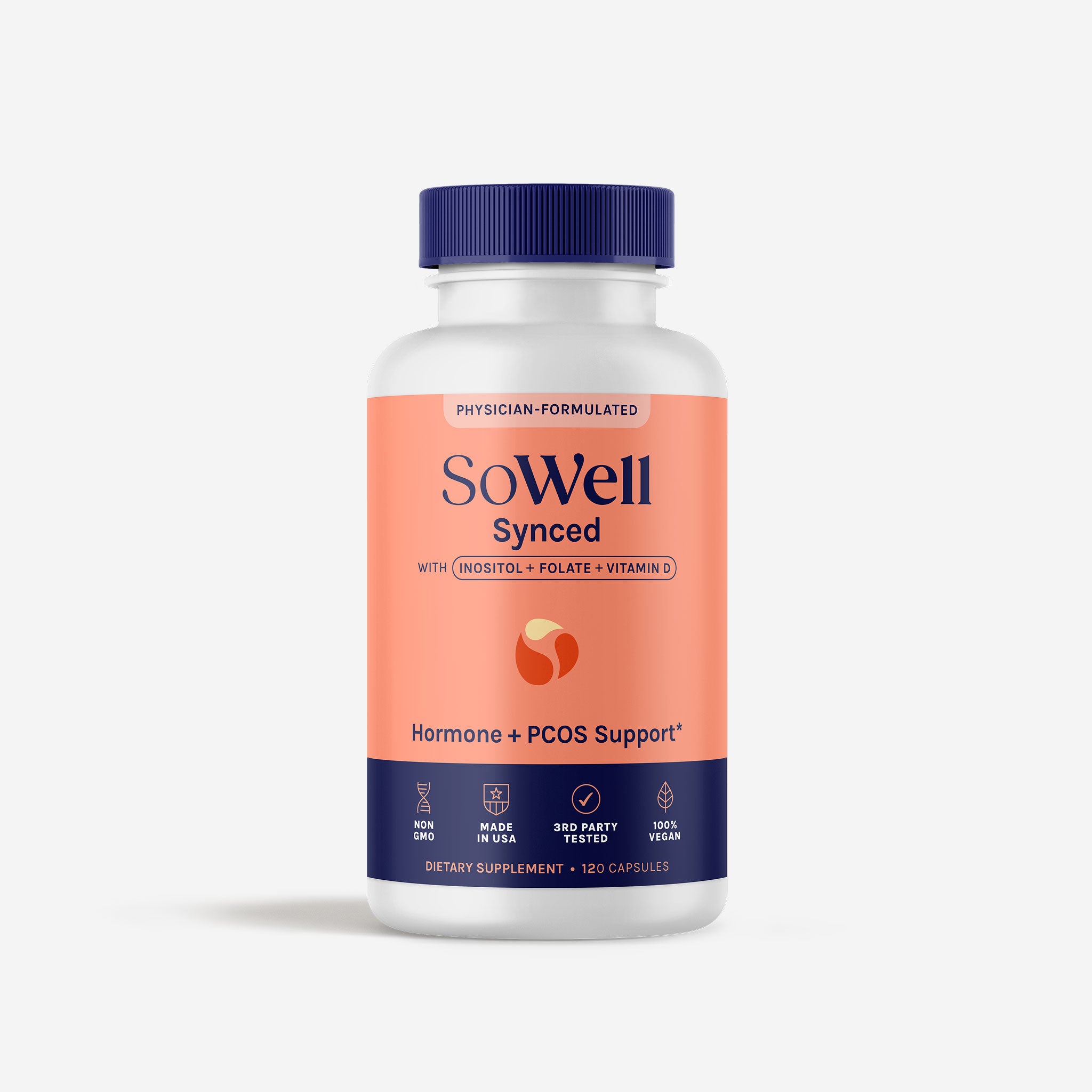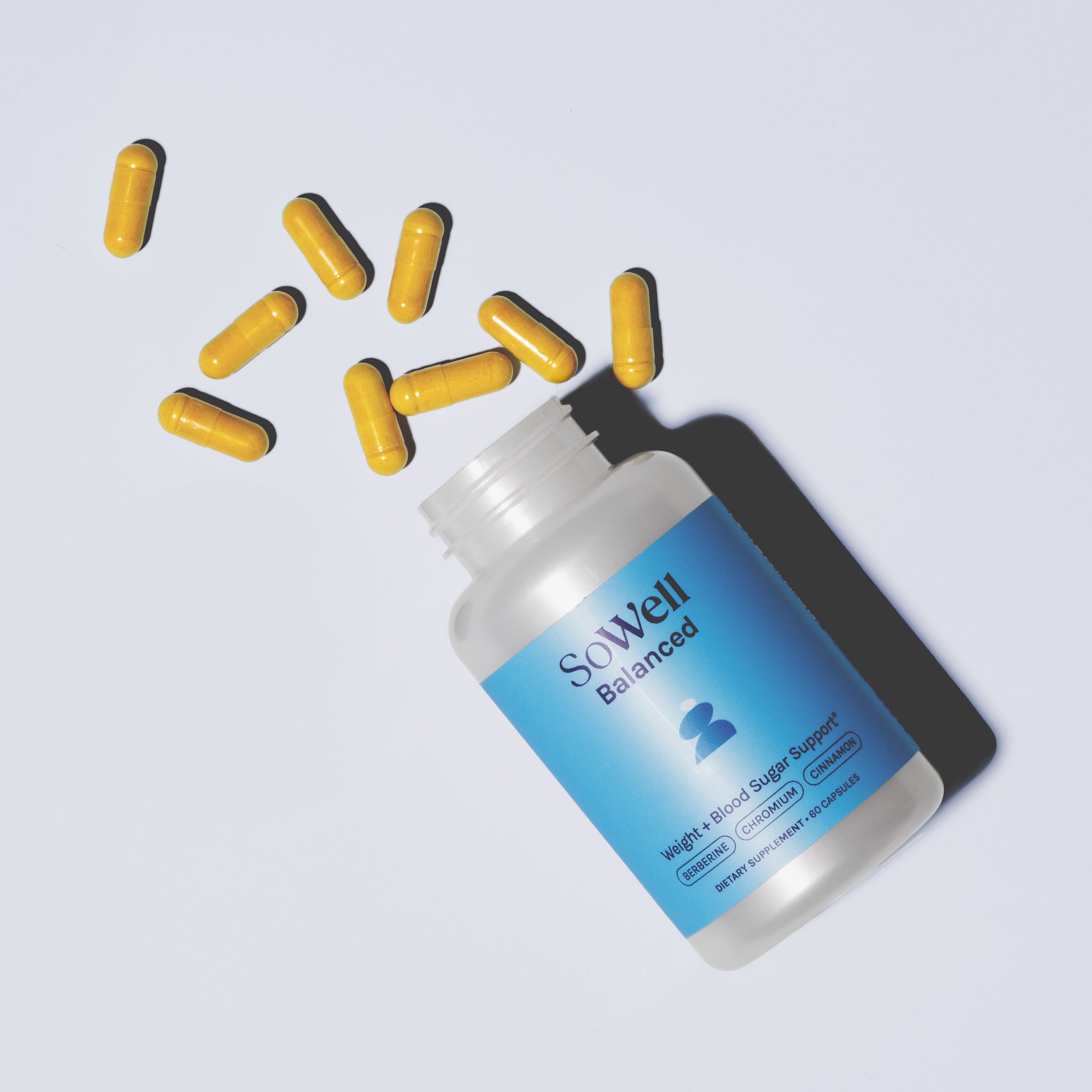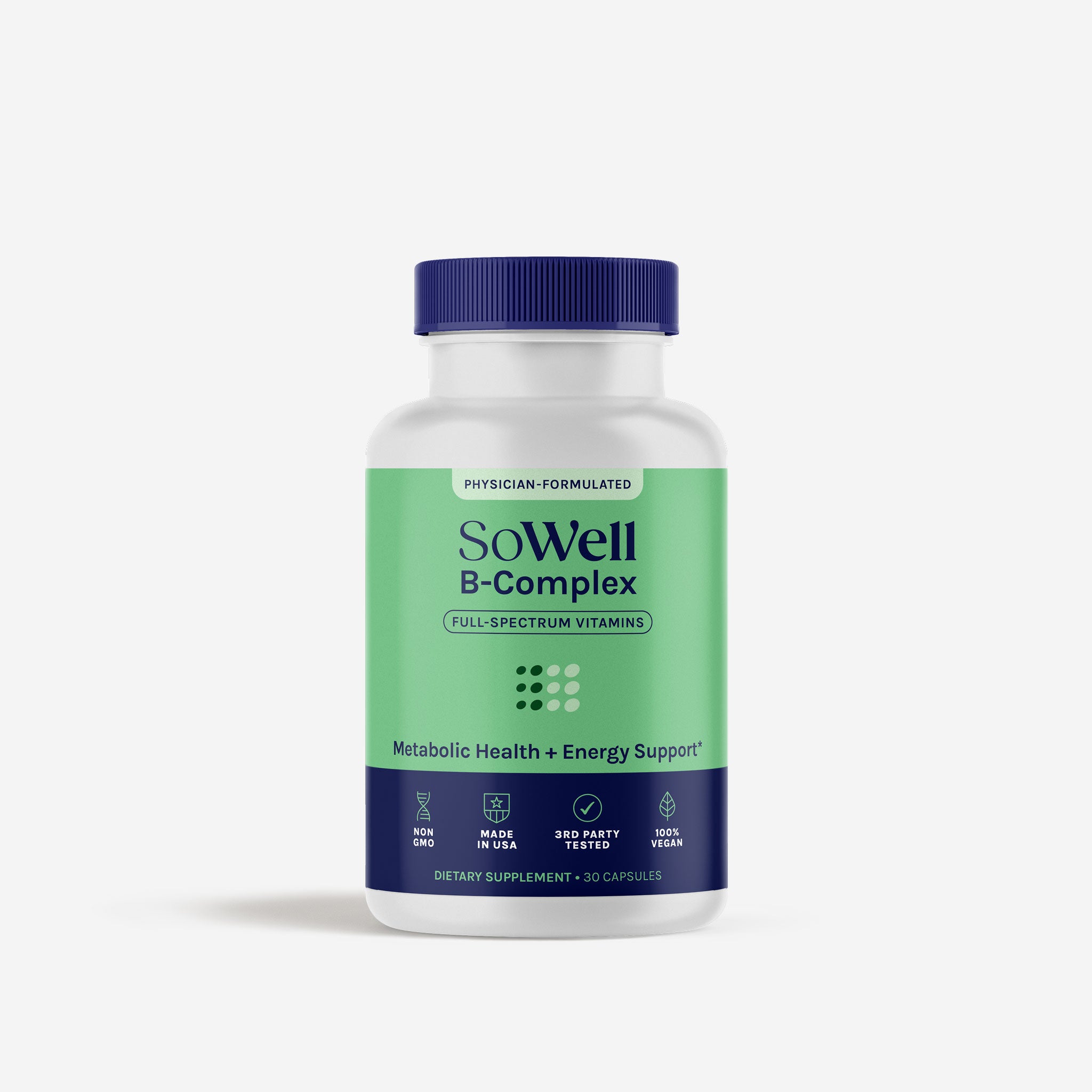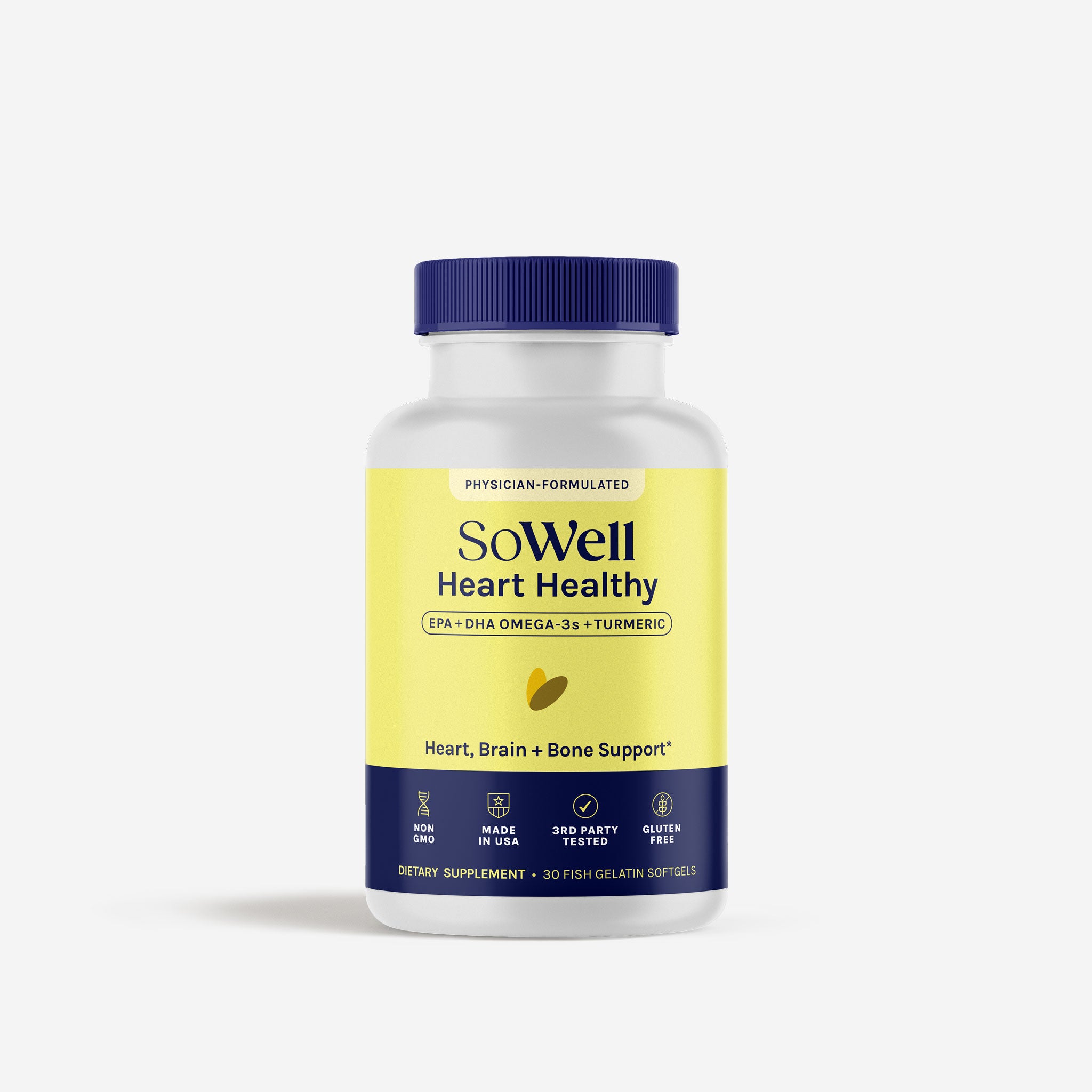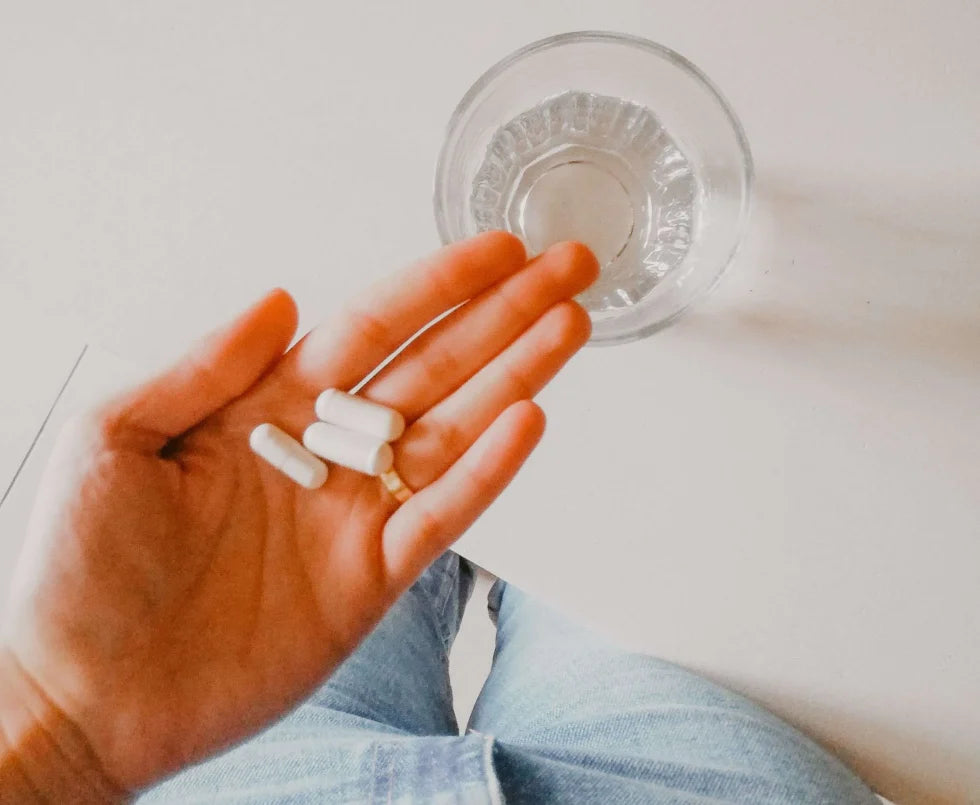
Women with polycystic ovary syndrome (PCOS) often have difficulty with insulin regulation. This can lead to weight gain, infertility, and an increased risk of type 2 diabetes.
Women struggling with PCOS-related insulin resistance may be able to manage symptoms by adding inositol treatment into the mix alongside lifestyle changes. Inositol may even support fertility in women who are having trouble getting pregnant.
Let’s look at how women can use inositol for PCOS to improve hormonal imbalances long-term.
How Inositol Works
PCOS women have trouble managing insulin levels due to an imbalance in the hormones responsible for glucose metabolism. That imbalance doesn’t just make women with PCOS more vulnerable to type 2 diabetes and weight gain. It can also cause a rise in androgen levels, the male hormones responsible for PCOS symptoms like hirsutism (abnormal hair growth).
As insulin resistance is the culprit behind so many symptoms in PCOS patients, balanced insulin levels may help improve overall outlooks in this area of women’s health. Inositol may help improve insulin sensitivity by balancing chemicals in the body responsible for blood sugar levels.
So what is inositol, exactly?
Inositol is a naturally-occurring sugar in the body that is also found in a variety of foods. In supplement form, you’re most likely to see inositol as myo-inositol and d-chiro-inositol. These are the main isomers responsible for its positive health benefits — including ovarian function.
Inositol vs. Metformin
Metformin is a commonly-prescribed medication for patients with type 2 diabetes, those struggling with obesity, and women with PCOS.
While metformin is considered the “gold standard” in PCOS treatment, it often causes unwanted side effects like gastrointestinal distress. Patients who experience diarrhea, nausea, vomiting, and abdominal pain while taking metformin are less likely to continue therapy, which doesn’t do much for long-term relief from PCOS.
According to a groundbreaking 2023 systematic review and meta-analysis of randomized controlled trials, inositol is just as effective as metformin for PCOS treatment and causes fewer side effects. Researchers noted inositol significantly improved:
- Insulin sensitivity
- Weight/BMI
- Hormone levels
- Glucose levels
- Ovulation
Compared to metformin, any gastrointestinal symptoms you may feel on inositol are mild. In fact, most who use inositol to treat PCOS symptoms feel no symptoms at all.
Ready to try a natural approach with inositol for your PCOS? Try GetSoSynced!
Inositol for Ovarian Function
Excess insulin in the body can affect normal ovarian function. That can mean irregular menstrual cycles, reduced pregnancy rates or infertility, and excess androgen production. Inositol may normalize ovarian function by bringing insulin levels back into balance.
Androgen Production
Hyperandrogenism, or high levels of androgens, is a main characteristic of endocrine disorders like polycystic ovarian syndrome. In women with PCOS, excess androgen production and rising testosterone levels may lead to abnormal hair growth, acne, and metabolic concerns.
Can inositol help with hirsutism? Inositol can help with hirsutism by helping to regulate hormones responsible for abnormal hair growth.
As excess androgens are also linked to insulin resistance, treatments like inositol supplementation that help regulate insulin levels may also improve symptoms of excess androgen production.
This can mean a reduction in unwanted hair, improved complexion, and an easier time with weight loss and weight management.
Ovulation & Menstruation
PCOS usually causes irregular menstrual cycles because of its effects on hormone levels in the body. You may have heavier periods that last longer than they should or no period at all. That lack of ovulation may lead to chronic infertility.
If you’re overweight or struggling with obesity, high levels of insulin can make menstrual cycles even less consistent. Inositol supplements can help support a more regular menstrual cycle by reducing insulin sensitivity.
Fertility
PCOS is one of the most common causes of anovulation — when no egg is released during a menstrual cycle. Chronic anovulation is a common cause of infertility, making it harder for women with PCOS to conceive.
PCOS patients who need help getting pregnant often turn to costly strategies like in vitro fertilization (IVF) to improve their chances. The effects of inositol on fertility are more modest than a round of IVF, but research is positive regarding its effects on ovarian health.
Healthy ovaries and egg production promote healthy fertility and boost your chances of conception. Inositol can also make IVF itself more effective.
The positive effects of myo-inositol on fertility include:
- Improved egg quality and oocyte maturation
- Increased number of viable eggs
- Higher pregnancy rates in women undergoing IVF
- Reduced risk of ovarian hyperstimulation syndrome (OHSS), a possible complication of IVF
Note that many women take myo-inositol as a combined therapy with folic acid or folate, the non-synthetic version found in foods. This is meant to improve follicle counts and boost fertility.
Talk to your primary healthcare provider or obstetrician about the right therapy for you before starting supplements, especially if you’re undergoing fertility treatments.
Inositol & Insulin Resistance
Inositol acts as a second messenger for insulin, removing barriers to key biological functions that regulate your hormones and metabolism.
Insulin resistance is the key component of many of the worst symptoms of PCOS. Improved insulin sensitivity can mean a dramatic reduction in symptoms that affect everything from sustained weight loss to your ability to have a child.
Myo-Inositol & Gestational Diabetes
PCOS patients are at a higher risk of developing gestational diabetes mellitus, or diabetes that develops in pregnancy. This can mean adverse pregnancy outcomes like preterm birth and an increased likelihood of Cesarean section.
Starting to take myo-inositol in the first trimester has shown promise in reducing the risk of developing gestational diabetes in women with PCOS in placebo-controlled trials. The supplement may also reduce complications at birth, such as preterm labor.
Inositol & Weight Management
Does inositol cause weight gain? Inositol does not cause weight gain in most women with PCOS. In fact, it can lead to modest weight loss in some people, thanks to its effects on insulin sensitivity and hormone levels.
How your body responds to inositol may depend on existing conditions, where you are in your weight loss journey, and your age.
If you’re still struggling to get to a healthy weight or keep falling into the cycle of yo-yo dieting, a group program can help.
At SoWell, our Metabolic Health & Weight Loss Jump-Start Program blends 1:1 medical management with group coaching for a more personalized level of accountability. We use evidence-based education on diet, weight loss medication, and more for sustainable weight loss.
These are proven approaches that work for long-term weight management, especially if you have obstacles like PCOS in your way.
Safety Precautions
Inositol is a safe treatment for many women struggling with PCOS symptoms, particularly if you stick to recommended dosages. If you are already on a medication management program for PCOS or other conditions, talk to your doctor before adding inositol supplementation.
More likely than not, inositol could be a safe addition to your overall plan to address persistent PCOS symptoms.
Side Effects
As a naturally-occurring sugar in the body, inositol has fewer side effects than other medication management methods for PCOS. However, adding any supplement to your diet may have some effects.
What are some side effects of inositol? Some side effects of inositol may include mild gastrointestinal symptoms like nausea, diarrhea, and gas.
Research shows that side effects are more likely with higher concentrations of inositol that fall beyond recommended dosages. Most PCOS patients feel little discomfort after adding inositol to their routine.
Recommended Dosages
Recommended dosages of inositol vary based on preexisting conditions, goals for PCOS symptom management, and your reproductive health. You should always talk to your healthcare provider about the best strategy for your PCOS symptoms.
That said, there are some general guidelines for women with PCOS interested in adding inositol into their routine.
How much inositol should a woman with PCOS take? A woman with PCOS should take anywhere from 1 to 4 g of inositol per day.
Most supplements suggest anywhere from 2-4 capsules per day, depending on the dosage. Positive effects may not be immediate, but many women who add inositol to a healthy diet see improvements in their symptoms within 3 months.
As with any new PCOS treatment, it’s important to give supplements time to do the work they need to do in the body before abandoning treatment.
40:1 Formulation
Healthy women typically have a natural ratio of myo-inositol (MI) and D-chiro-inositol (DCI) at 100:1. Women with PCOS often have higher levels of DCI responsible for increases in insulin resistance.
Supplements that only include DCI attempt to remedy that problem, but a solid supplement needs both MI and DCI to work effectively. The ideal ratio is 40:1 for women looking to improve PCOS complications like weight gain, infertility, and insulin resistance.
At SoWell, our GetSoSynced supplements include the ideal balance of MI and DCI to support healthy hormone levels and insulin resistance in patients with PCOS. Added ingredients like folic acid and magnesium act not as fillers but as key ingredients to ovarian health.
Beware of Added Ingredients
It’s important to read labels closely before adding inositol supplements to your diet. Some contain additives that aren’t proven to support ovarian health. Others may include artificial sugars, vitamins, and minerals that could interact with your diet or medications.
If you’re unsure where to start with inositol supplements, your primary care doctor is always a great resource.
When Trying to Conceive
Inositol is safe for women trying to conceive. We’ve already described the positive effects of inositol on fertility, but it’s also supportive during early pregnancy. This is especially true for women at risk for developing gestational diabetes.
It’s important to note that inositol supplementation is not a replacement for a healthy lifestyle. Maintaining a healthy weight, regular exercise, a balanced diet, stress management, and good sleep hygiene are all important to how likely you are to conceive.
Yes, it even matters how you sleep.
If you think a sleep disorder may be getting in the way of a solid night’s rest, start with a simple sleep apnea assessment. Conditions like sleep apnea don’t just affect how good you feel in the morning. They can affect your hormones too.
Inositol Supplementation vs. Food Sources
Inositol is found in a number of healthy foods like fruits, beans, whole grains, and nuts. To boost your intake, add foods like:
- Artichokes
- Bran
- Brown rice
- Cantaloupe
- Citrus — especially oranges and grapefruit
- Eggplant
- Kidney beans
- Oatmeal
- Okra
- Peas
- Pinto beans
Keep in mind: Many of these foods cause insulin and glucose spikes, which can be a major problem for PCOS. These foods may not fit into your dietary plan, so we recommend getting your inositol through a supplement to be sure you’re getting a significant dose on a daily basis.
High-quality supplements are just as good as food sources in getting to that recommended daily dosage of inositol. If you experience mild symptoms after each dose, taking inositol with food may help ease stomach distress.
Added Benefits of Inositol
- Inositol may improve your metabolic health. Unregulated insulin can increase your risk of metabolic syndrome. That puts you at risk for serious conditions like cardiovascular disease and stroke.
- Your mental health may improve. Limited studies show the positive effects of inositol in patients with anxiety and depression. This may be thanks to its effects on serotonin, the feel-good hormone, but more research is needed to understand the connection fully.
- Inositol may keep blood pressure at healthy levels. A recent meta-analysis shows inositol may decrease your risk of hypertension. It appears to work best as prevention for patients with blood pressure already within the healthy range rather than a treatment for high blood pressure.
- Inositol could reduce your cholesterol. Patients with metabolic diseases and high levels of low-density lipoprotein (LDL) may see improvements in their lipid profiles with regular inositol supplementation.
A better approach to PCOS is possible…
It can feel impossible to get a handle on PCOS symptoms, especially if it seems like you’ve tried everything. Inositol may be an important component in a new plan for managing PCOS, but an individualized approach to get to the root of your symptoms is always best.
At SoWell we can help you identify not just what you’re doing wrong, but everything you’re doing right. Our Weight Biology Kit is an easy, at-home lab kit that can help you pinpoint metabolic factors like insulin resistance getting in the way of your PCOS management.
Once you’re armed with information, you can start to make better choices in managing your PCOS symptoms, whether through supplementation or dietary changes. Get to know your body. Fill in the gaps. Start feeling better today.
Want to learn more about what we do? Subscribe to our newsletter today.
*These statements have not been evaluated by the Food and Drug Administration. This product is not intended to diagnose, treat, cure, or prevent any disease.
Sources
- Bizzarri, M. & Carlomagno, G. (2014). Inositol: history of an effective therapy for polycystic ovary ayndrome. European Review for Medical Pharmacological Sciences, 18(13), 1896-1903.
- Wang, R., Li, W., Bordewijk, E. M., et al. (2019). First-line ovulation induction for polycystic ovary syndrome: an individual participant data meta-analysis. Human Reproduction Update, 25(6), 717-732.
- Zeng, X., Xie, Y. J., Liu, Y. T., et al. (2020). Polycystic ovarian syndrome: Correlation between hyperandrogenism, insulin resistance and obesity. Clinica Chimica Acta, 502, 214-221.
- Bevilacqua, A. & Bizzarri, M. (2018). Inositols in insulin signaling and glucose metabolism. International Journal of Endocrinology.
- Rodriguez Paris, V. & Bertoldo, M. J. (2019). The mechanism of androgen actions in PCOS etiology. Medical Sciences, 7(9), 89.
- Minozzi, M., D’Andrea, G., & Unfer, V. (2008). Treatment of hirsutism with myo-inositol: a prospective clinical study. Reproductive Biomedicine Online, 17(4), 579-582.
- Mitrašinović-Brulić, M., Buljan, M., & Suljević, D. (2021). Association of LH/FSH ratio with menstrual cycle regularity and clinical features of patients with polycystic ovary syndrome. Middle East Fertility Society Journal, 26, 40.
- Kachhawa, G., Senthil Kumar, K. V., Kulshrestha, V., et al. (2022). Efficacy of myo-inositol and d-chiro-inositol combination on menstrual cycle regulation and improving insulin resistance in young women with polycystic ovary syndrome: A randomized open-label study. International Journal of Gynecology & Obstetrics, 158, 278-284.
- Balen, A. H. & Rutherford, A. J. (2007). Managing anovulatory infertility and polycystic ovary syndrome. BMJ, 335(7621), 663-666.
- Patel, S. S. & Carr, B.R. (2008). Oocyte quality in adult polycystic ovary syndrome. Seminars Reproductive Medicine, 26(2), 196-203.
- Ciotta, L., Stracquadanio, M., Pagano, I., et al. (2011). Effects of myo-inositol supplementation on oocyte’s quality in PCOS patients: a double blind trial. Eur Rev Med Pharmacol Sci, 15(5):509-514.
- Zheng, X., Lin, D., Zhang, Y., et al. (2017). Lin Y, Song J, Li S, Sun Y. Inositol supplement improves clinical pregnancy rate in infertile women undergoing ovulation induction for ICSI or IVF-ET. Medicine, 96(49).
- Turan, G. A., Eskicioglu, F., Sivrikoz, O. N., et al. (2015). Myo-inositol is a promising treatment for the prevention of ovarian hyperstimulation syndrome (OHSS): an animal study. Archive of Gynecology and Obstetrics, 292(5), 1163-1171.
- Unfer, V., Facchinetti, F., Nestler, J. et al. (2017). Myo-inositol effects in women with PCOS: a meta-analysis of randomized controlled trials. Endocrine Connections, 6(8), 647-658.
- Li, X., Liu, X., Zuo, Y., et al. (2021). The risk factors of gestational diabetes mellitus in patients with polycystic ovary syndrome. Medicine, 100(31), e26521.
- Ye, W., Luo, C., Huang, J., et al. (2022). Gestational diabetes mellitus and adverse pregnancy outcomes: Systematic review and meta-analysis. BMJ, 37, e067946.
- D’Anna, R., Santamaria, A., Alibrandi, A., et al. Myo-Inositol for the prevention of gestational diabetes mellitus. Journal of Nutritional Science and Vitaminology, 65, S59-S61.
- Le Donne, M., Metro, D., Alibrandi, A., et al. (2019). Effects of three treatment modalities (diet, myoinositol or myoinositol associated with D-chiro-inositol) on clinical and body composition outcomes in women with polycystic ovary syndrome. European Review for Medical and Pharmacological Sciences, 23(5), 2293-2301.
- Carlomagno, G. & Unfer, V. (2011). Inositol safety: clinical evidences. European Review for Medical and Pharmacological Sciences, 15(8), 931-6.
- Roseff, S. & Montenegro, M. (2020). Inositol treatment for PCOS should be science-based and not arbitrary. International Journal of Endocrinology.
- Galazis, N., Galazi, M., & Atiomo, W. (2010). D-Chiro-inositol and its significance in polycystic ovary syndrome: a systematic review. Gynecological Endocrinology, 27(4), 256-262.
- Formoso, G., Baldassarre, M. P. A., Ginestra, F., et al. (2019). Inositol and antioxidant supplementation: Safety and efficacy in pregnancy. Diabetes/Metabolism Research and Reviews, 35(5), e3154.
- Moghetti, P. (2016). Insulin resistance and polycystic ovary syndrome. Current Pharmaceutical Design, 22(36), 5526-5534.
- Saluja, M., Pareek, K. K., & Swami, Y. K. (2020). Study of diversity of metformin related gastrointestinal side effects. Journal of the Association of Physicians in India, 68(8), 36-38.
- Nas, K. & Tűű L. (2017). A comparative study between myo-inositol and metformin in the treatment of insulin-resistant women. European Review for Medical and Pharmacological Sciences, 21(2 Suppl), 77-82.
- Mukai, T., Kishi, T., Matsuda, Y., et al. (2014). A meta-analysis of inositol for depression and anxiety disorders. Human Psychopharmacology, 29(1), 55-63.
- Hashemi Tari, S., Sohouli, M. H., Lari, A., et al. (2021). The effect of inositol supplementation on blood pressure: A systematic review and meta-analysis of randomized-controlled trials. Clinical Nutrition ESPEN, 44, 78-84.
- Tabrizi, R., Ostadmohammadi, V., Lankarani, K. B., et al. (2018). The effects of inositol supplementation on lipid profiles among patients with metabolic diseases: a systematic review and meta-analysis of randomized controlled trials. Lipids in Health and Disease, 17(1), 123.
